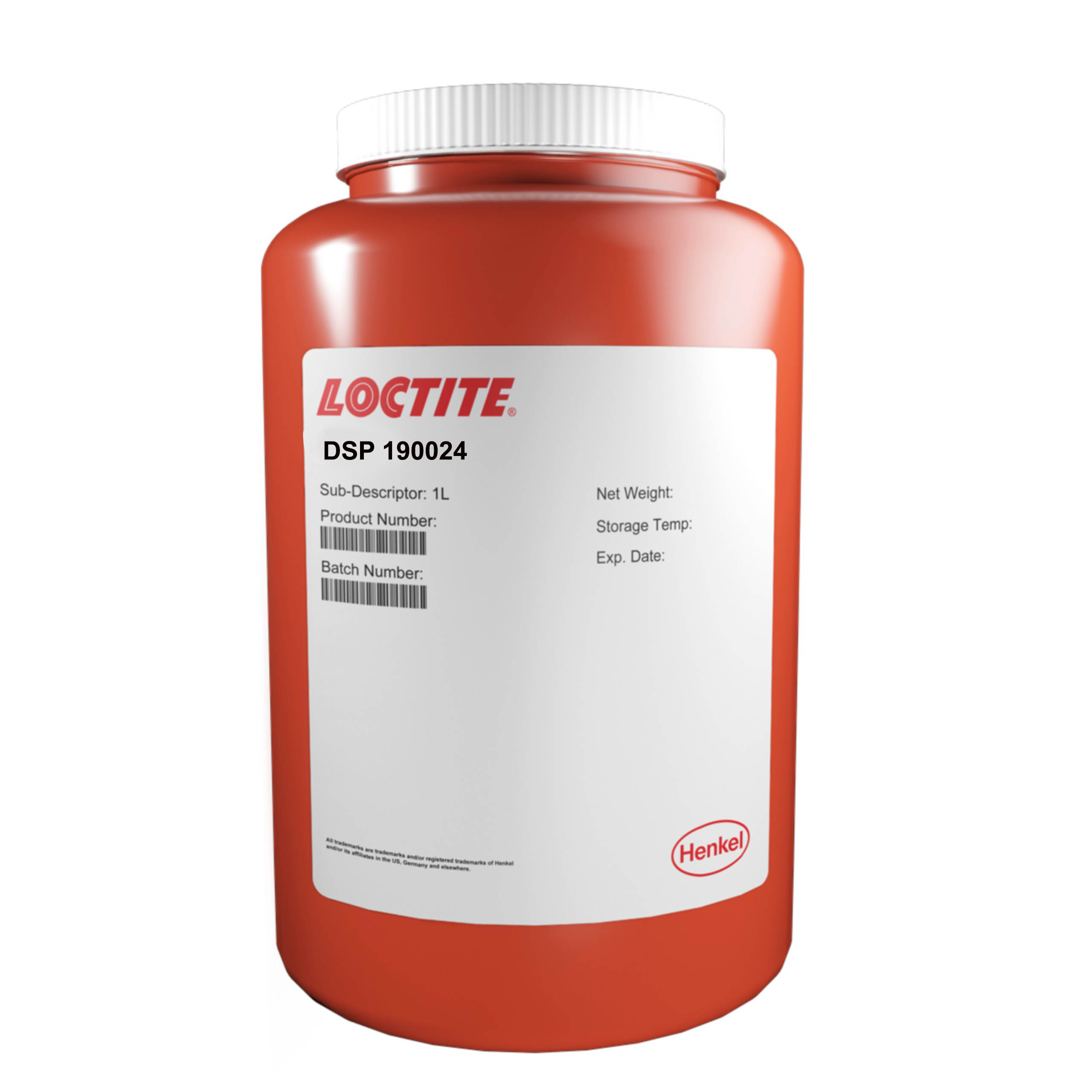LOCTITE DSP 190024
- UV Cure
- Bone white translucent
- Sealant for displays
Product Description
LOCTITE® DSP 190024 is an acrylated urethane, primarily designed for bonding rigid and flexible PVC to polycarbonate where large gap filling capabilities (0.25mm) and a flexible joint are desired. Its flexibility enhances the load bearing and shock absorbing characteristics of the bond area. The product has shown excellent adhesion to a wide variety of substrates including glass, many plastics and most metals and is used as a UV curable sealant for displays. In that sense it is quite similar to LOCTITE 3703. The thixotropic nature of LOCTITE® DSP 190024™ reduces the migration of liquid product after application to the substrate.
LOCTITE® DSP 190024 can be cured by exposure to UV and/or visible light of sufficient intensity. Surface cure is enhanced by exposure to UV light in the 220 to 260 nm range. Cure rate and ultimate depth of cure depend on light intensity, spectral distribution of the light source, exposure time and light transmittance of the substrate through which the light must pass.
Technical Specifications
| General Properties | |||||
| Specific Gravity Specific Gravity Specific gravity (SG) is the ratio of the density of a substance to the density of a reference substance; equivalently, it is the ratio of the mass of a substance to the mass of a reference substance for the same given volume. For liquids, the reference substance is almost always water (1), while for gases, it is air (1.18) at room temperature. Specific gravity is unitless. | 1.12 | ||||
| Physical Properties | |||||
| Viscosity Viscosity Viscosity is a measurement of a fluid’s resistance to flow. Viscosity is commonly measured in centiPoise (cP). One cP is defined as the viscosity of water and all other viscosities are derived from this base. MPa is another common unit with a 1:1 conversion to cP. A product like honey would have a much higher viscosity -around 10,000 cPs- compared to water. As a result, honey would flow much slower out of a tipped glass than water would. The viscosity of a material can be decreased with an increase in temperature in order to better suit an application | 20,000 mPa.s | ||||
| Mechanical Properties | |||||
| Elongation Elongation Elongation is the process of lengthening something. It is a percentage that measures the initial, unstressed, length compared to the length of the material right before it breaks. It is commonly referred to as Ultimate Elongation or Tensile Elongation at break. | 85 % | ||||
| |||||



